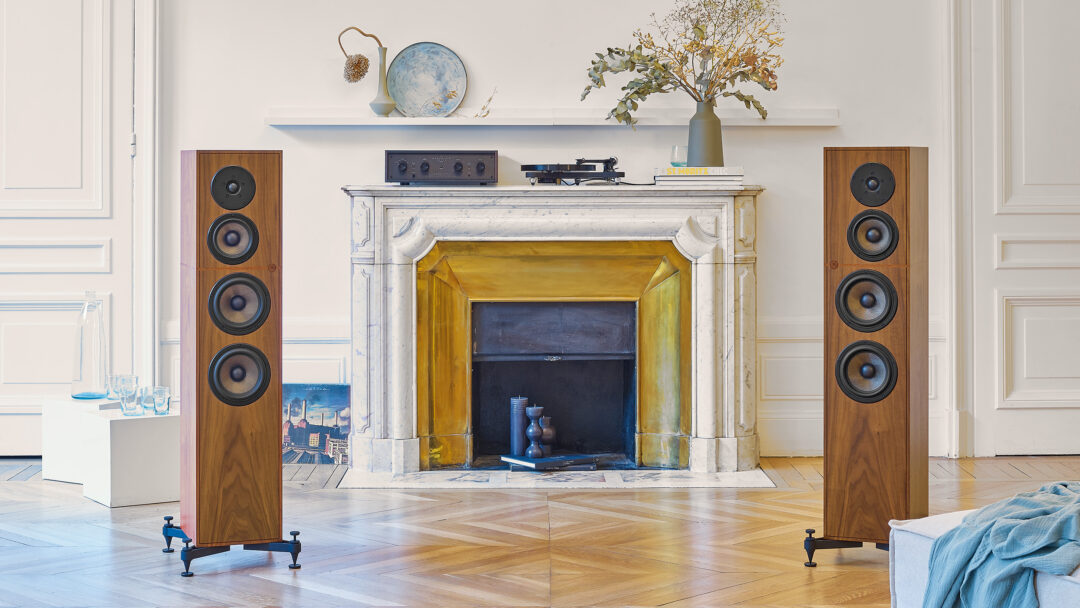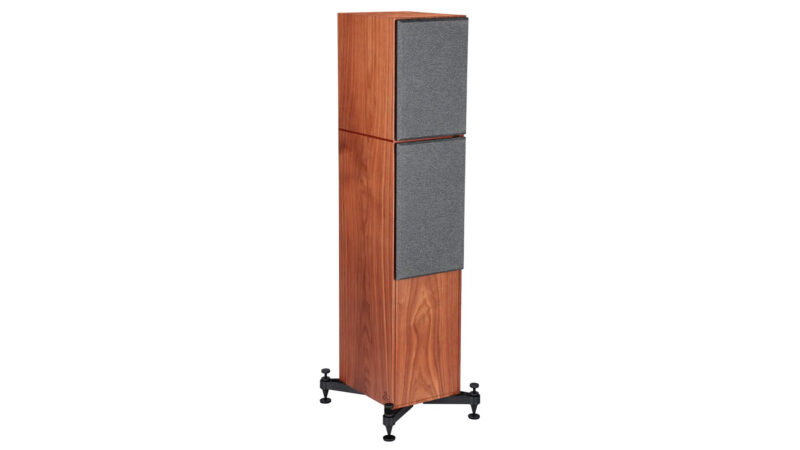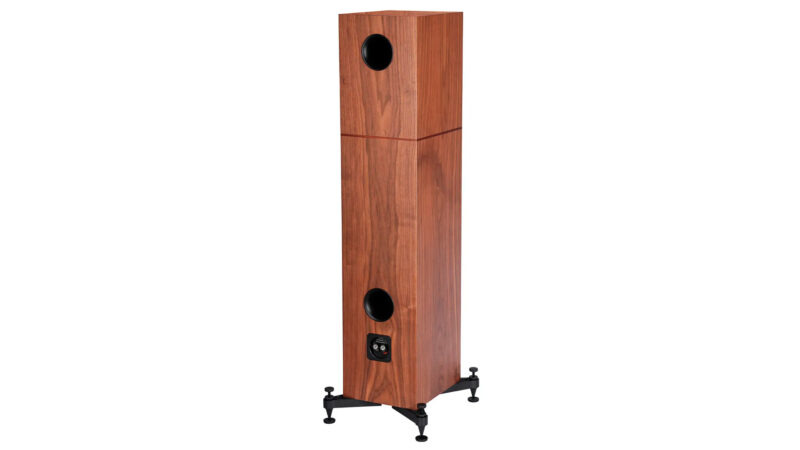Revival Audio has taken not only us, but most reviewers by storm since their debut a year ago. This applies to both the compact stand model Atalante 3 and the powerful and rather voluminous Atalante 5.
So, of course, we had to test the new ” middle model” Atalante 4 as soon as possible when the opportunity arose.
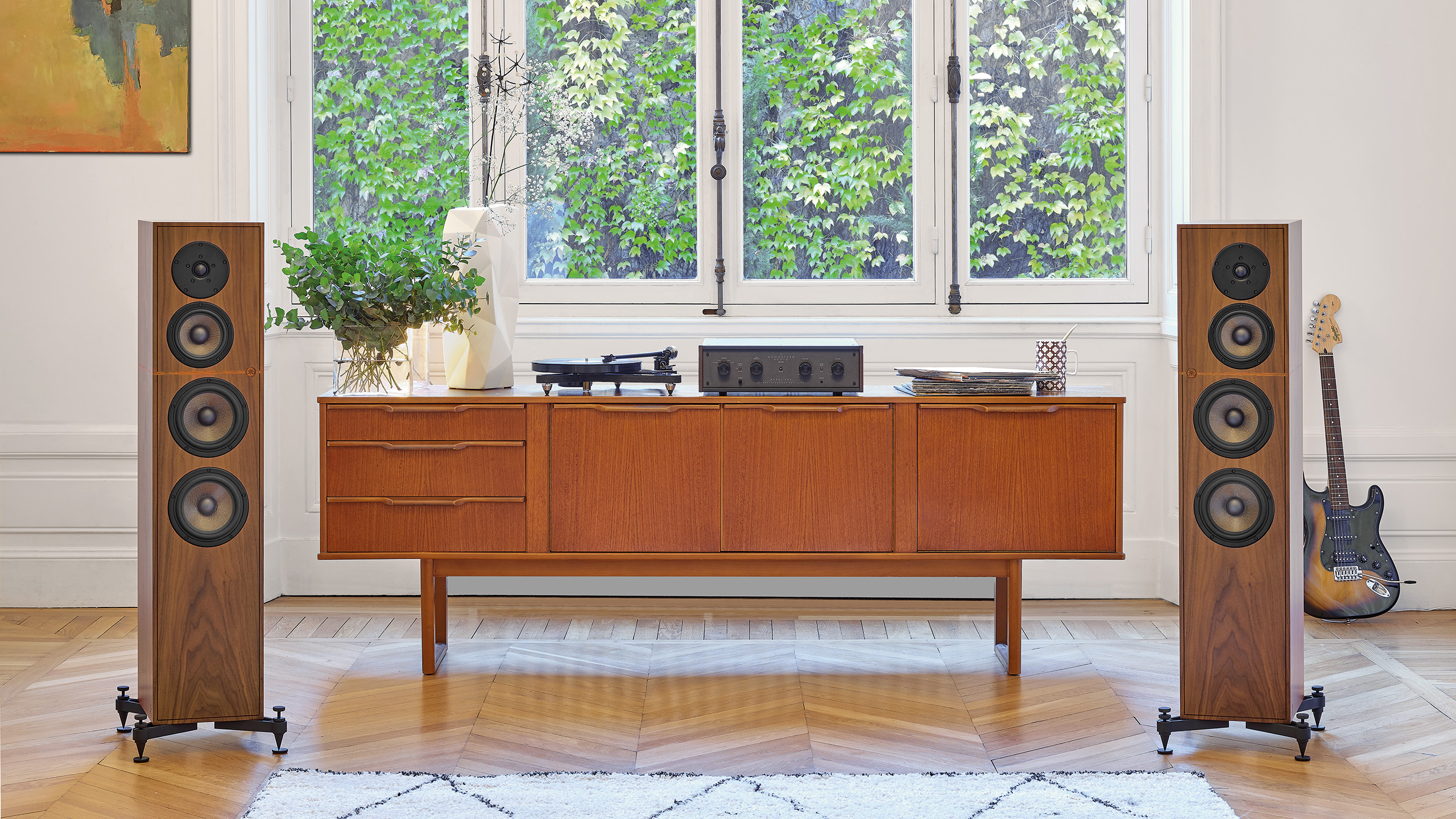
The Revival Audio Atalante 4 is the first floorstanding model in the series. It’s slimmer and slightly cheaper than the Atalante 5, but the 120-centimetre high cabinet is by no means discreet. Which, on the other hand, can be a good thing when it’s as beautifully crafted as it is here. The cabinet is veneered with real walnut veneer on all surfaces, and an inlaid veneer stripe all around adds an extra touch of luxury.
Three-way with four drivers
Like its big brother, the Atalante 4 is a three-way design, but with two small seven-inch base units instead of one large 12-inch. The cones are the same sandwich construction of braided basalt fibres and felt as in the other two models.
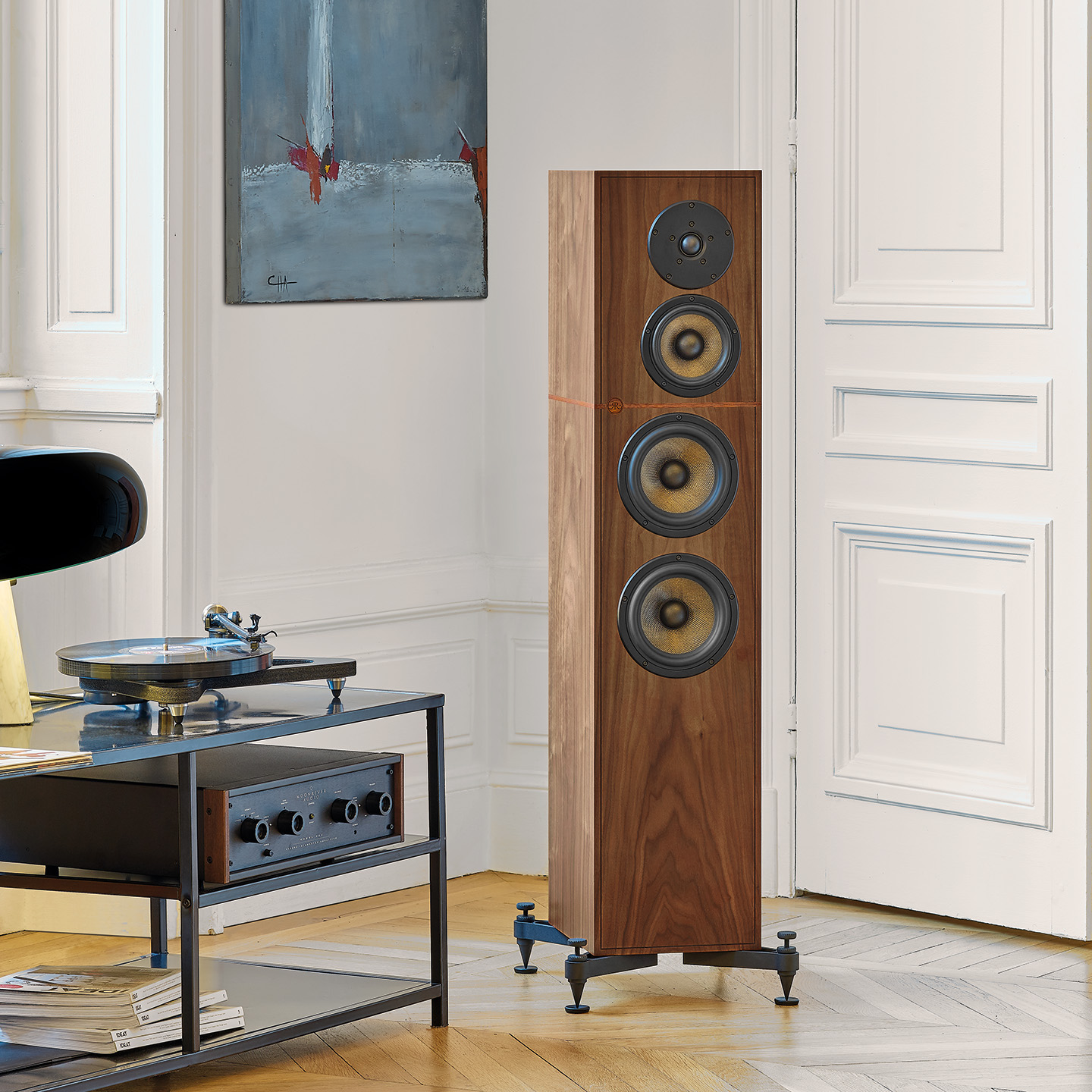
The midrange unit is 13.5 cm in diameter, but constructed in the same way as the woofers.
The tweeter is the same 28 mm soft dome as in the other two Atalante models. The unit has a larger “cabinet” behind the dome than usual for tweeters and a very low self-resonance of 650 Hz. Loudspeaker geeks may notice that the construction is very reminiscent of the old Dynaudio D-28 tweeters. This is hardly a coincidence, as one of Revival Audio’s founders, Daniel Emonts, is a former chief acoustician at Dynaudio.
On the back of the cabinet, you’ll find a set of terminals of decent, but not ostentatious quality, as well as two bass reflex ports.
The sensitivity is the same as the Atalante 5, 89 dB at 2.83 V. This means that in terms of power, the Revival Audio Atalante 4 can get by with a relatively small amplifier. But it doesn’t guarantee that any amplifier of 30 W or more will be an adequate match. Big brother Atalante 5 proved to be more picky about amplifier selection than most speakers.
Care for the floor – and your toes
Although the Atalante 4 is a large speaker, the relatively narrow cabinets don’t really require more floor space than a pair of medium-sized compact speakers on stands. Since the speakers have a relatively deep bass response (-3 dB at 38 Hz), avoid placing them too close to back walls and corners. The included foam plugs for the two bass reflex ports can make some difference. And room correction in the amplifier can make a huge difference.
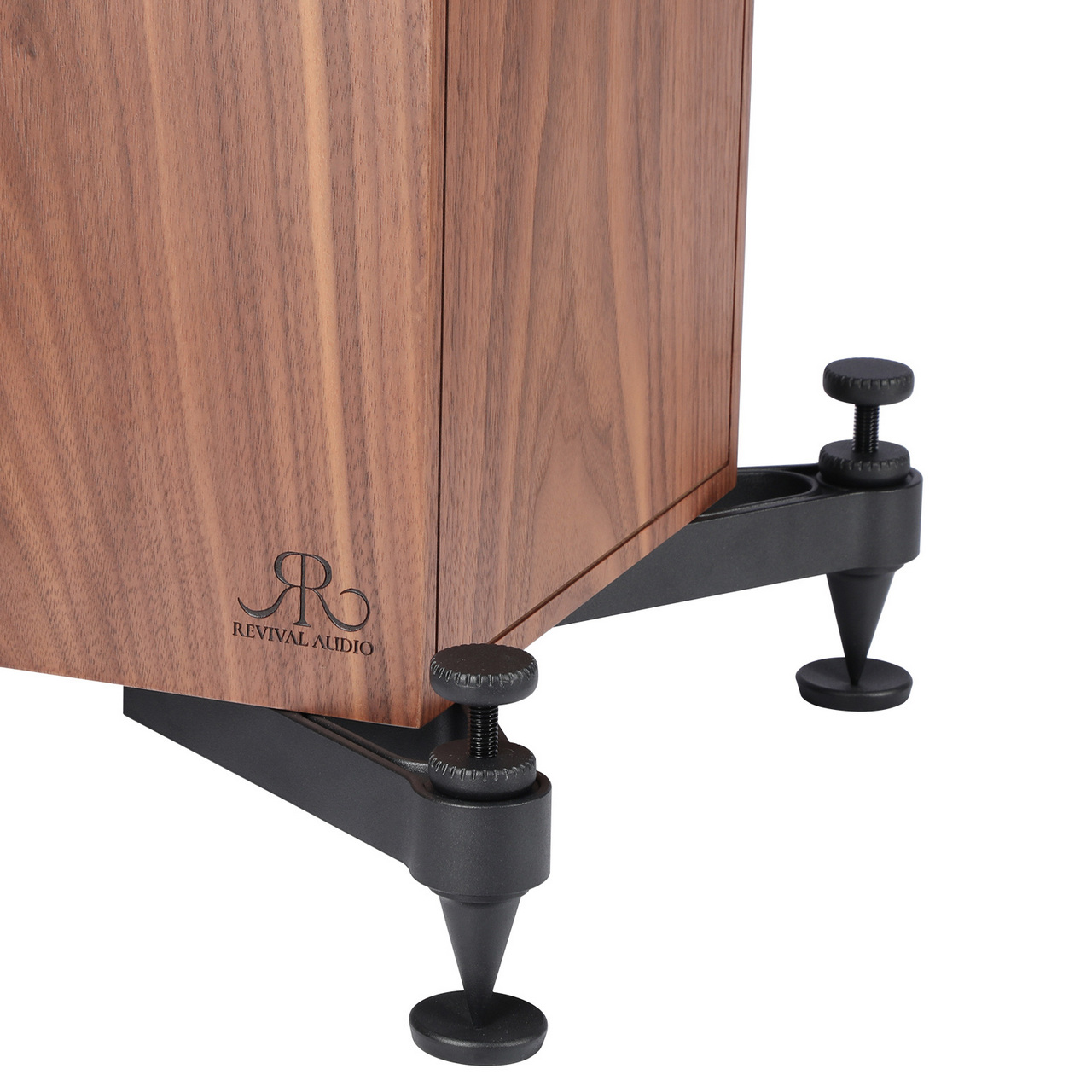
Four wide-straddling metal feet with adjustable spikes underneath ensure stable contact with the floor. However, protective metal discs are included to put under the spikes. This arrangement has been seen on many other floorstanding speakers and it works well. However, it’s a challenge to manoeuvre the 38 kg cabinets into place while trying to keep the loose metal discs in place so you don’t perforate the floorboards or your own toes.
Sound quality
While the difference between the Atalante 3 and Atalante 5 was obvious in terms of price and size, the Revival Audio Atalante 4 is a little more complicated. Rather than being a straightforward middle model, it’s more of an alternative to a top-of-the-range model.
This is also true in terms of sound. In many ways, the two high-end models are similar, but there are differences.
Fortunately, one thing that has been retained is the large and very transparent soundstage. The speakers have a freedom from self-noise and resonance that is rare – even in this price range. This makes it easy to believe that the speakers are a window into the concert hall or recording room. Whether it’s the legendary Swedish jazz club Stampen when the music is I’m Confessin’ from Jazz at the Pawnshop, or the concert hall in Cincinnati when Rhapsody in Blue in the Telarc recording is on the programme.
When I tested the Atalante 5, I found that the NAD C658/C298 amplifier set, which serves as my normal reference in the price range, gave a slightly dull overall sound. Especially in the midrange. With the Atalante 4, the sound was still sober, but subjectively somewhat more musical than with the Atalante 5.
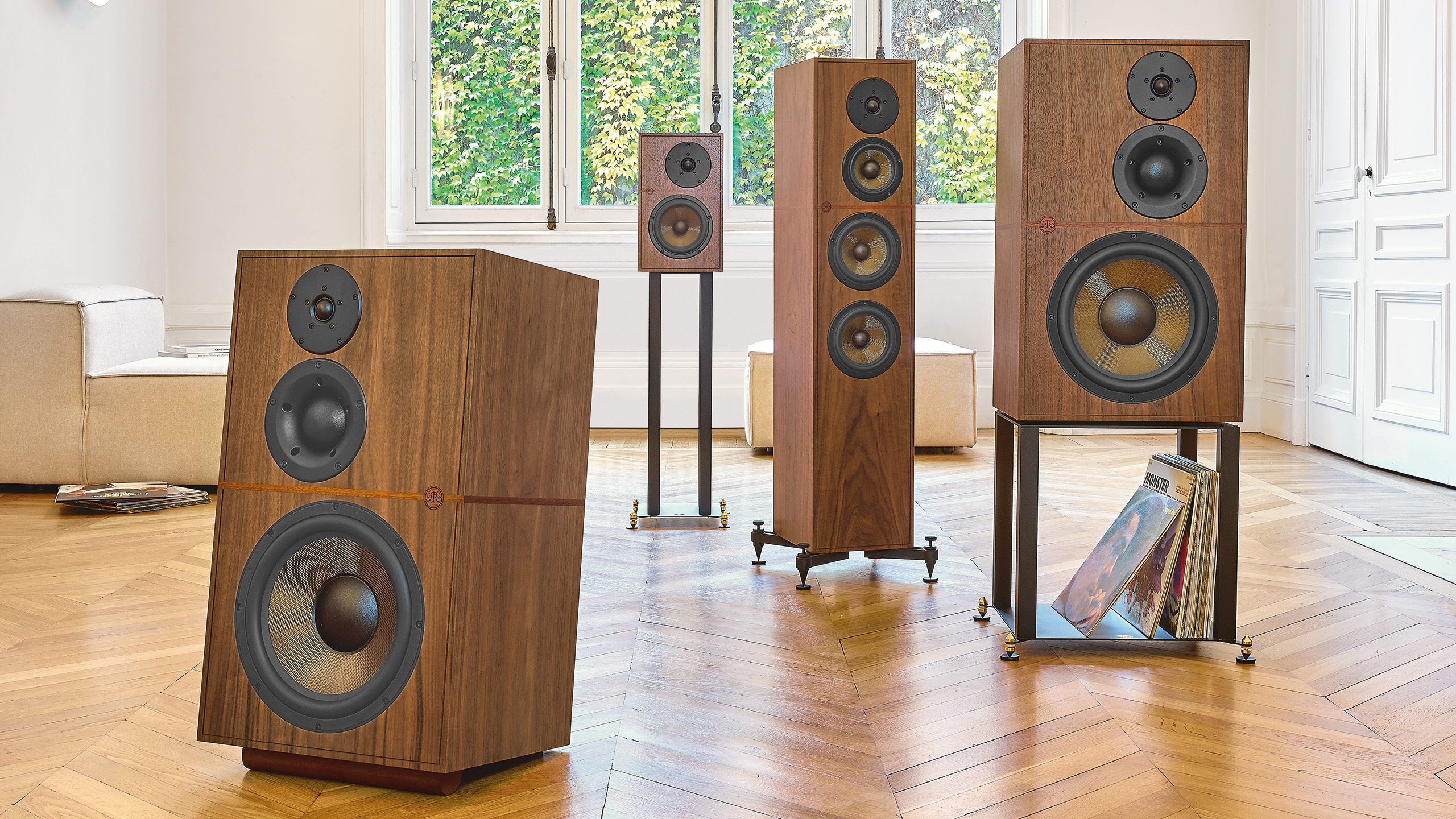
Marianne Faithfulls rendition of Pirate Jenny was by no means boring, even though every scar on her vocal cords and soul was laid bare in the soundscape.
Less critical with the amplifier
Naturally, I couldn’t resist – in the service of science – plugging in my hand-built Nelson Pass Zen V2 power amplifier. The eight watts of pure, single-ended class A power was just enough to drive the speakers to a comfortable sound pressure level. While the difference between the two amplifiers was like night and day on the Atalante 5, the effect was far less pronounced on the Atalante 4. The Class A amplifier still sounded heavenly in the midrange and the feeling of listening to live music went up a notch. But it sounded almost as good and musical on the Class D amplifier.
The question is, is this a quality of the speaker – or is it just not as revealing of the NAD amplifier as its big brother is? I haven’t had the two speakers set up side by side. But my judgement is that the midrange dome in the Atalante 5 is a bit more revealing – and thus demanding – than the midrange unit in the Atalante 4. But in any case, the difference is subtle. And both speakers deliver on a high level.
Overall, it’s probably safe to say that the Atalante 4 will be easier to live with if your hi-fi interest is “just” about listening to music.
Competitors
There’s no shortage of competition at the lower end of the high-end segment, where the quality is high but the price still makes sense. Here you can find party animals like the JBL L100 Classic and Klipsch Heresy IV. And you can get excellent floor models from established manufacturers like KEF R7 Meta and DALI Rubicon 6. Which is the best choice is a matter of taste. The Revival Audio Atalante 4 delivers a truly uncoloured and undistorted sound that suits acoustic music in particular. But they still have the power and efficiency to play at a party.
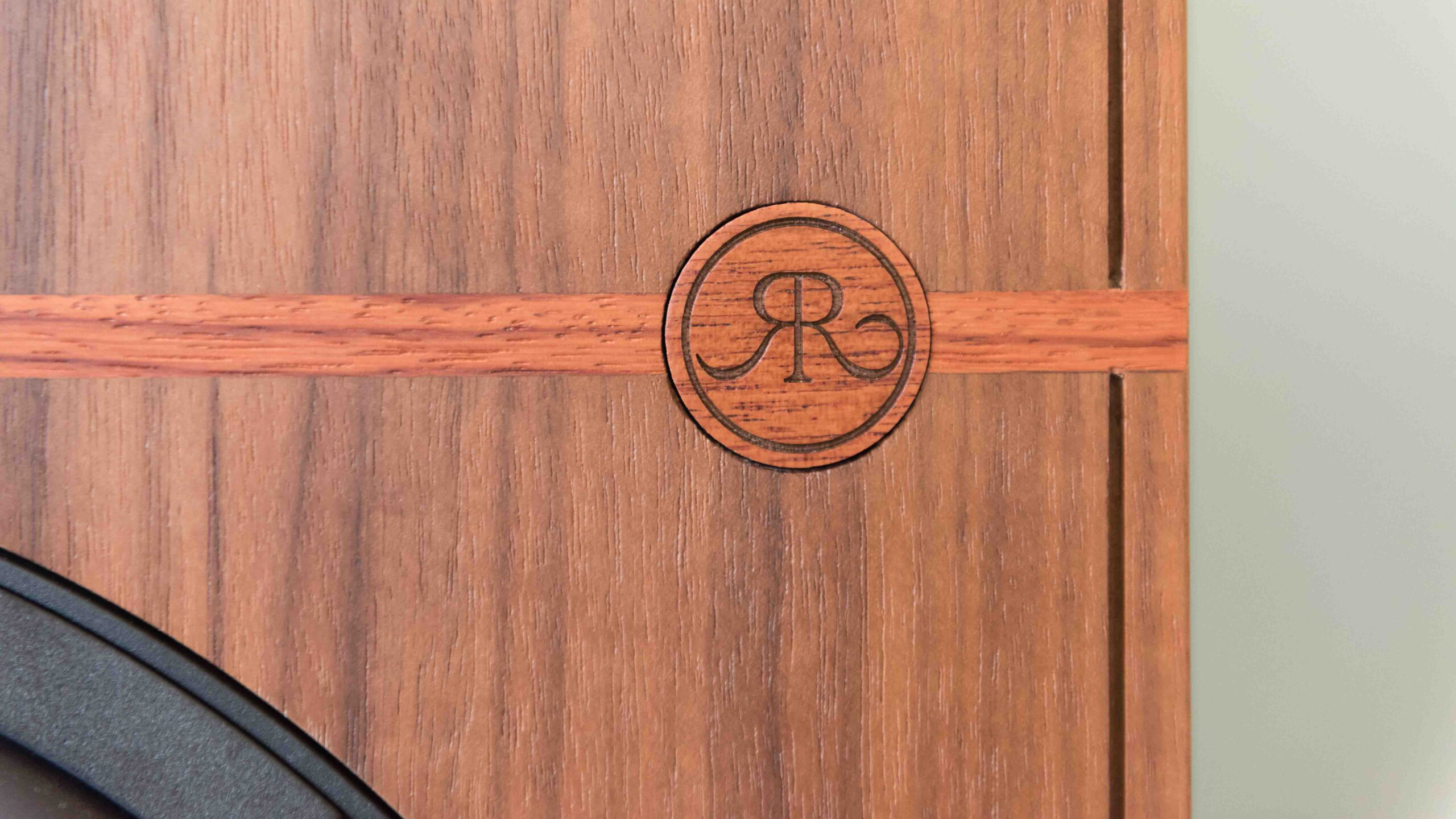
Free built-in stand
With only a few hundred euros difference in price between the Atalante 4 and Atalante 5, Revival Audio will be competing with itself. The Atalante 5 goes a little deeper in the bass, but the wider cabinets seem extremely dominant in the living room when lifted up on the necessary stands. And even the same stands add a few hundred euros to the price. As a floorstanding speaker, the Atalante 4 does not need stands to bring the speaker units up to ear level.
Conclusion
What’s the best? A slim floorstanding speaker or a large standmount model? The Revival Audio Atalante 4 is a little easier to please than its big brother, both in terms of placement and amplifiers. This may sound like a compromise, but if it is, it’s certainly at a very high quality level.
The Atalante 4 is a speaker that is likely to bring out details in your favourite music that you either haven’t heard before – or at least couldn’t afford to hear at home. Discreet they are not, but the craftsmanship is so exquisite that you’d have to be a fanatical minimalist not to consider the tall walnut cabinets an embellishment to your living room.
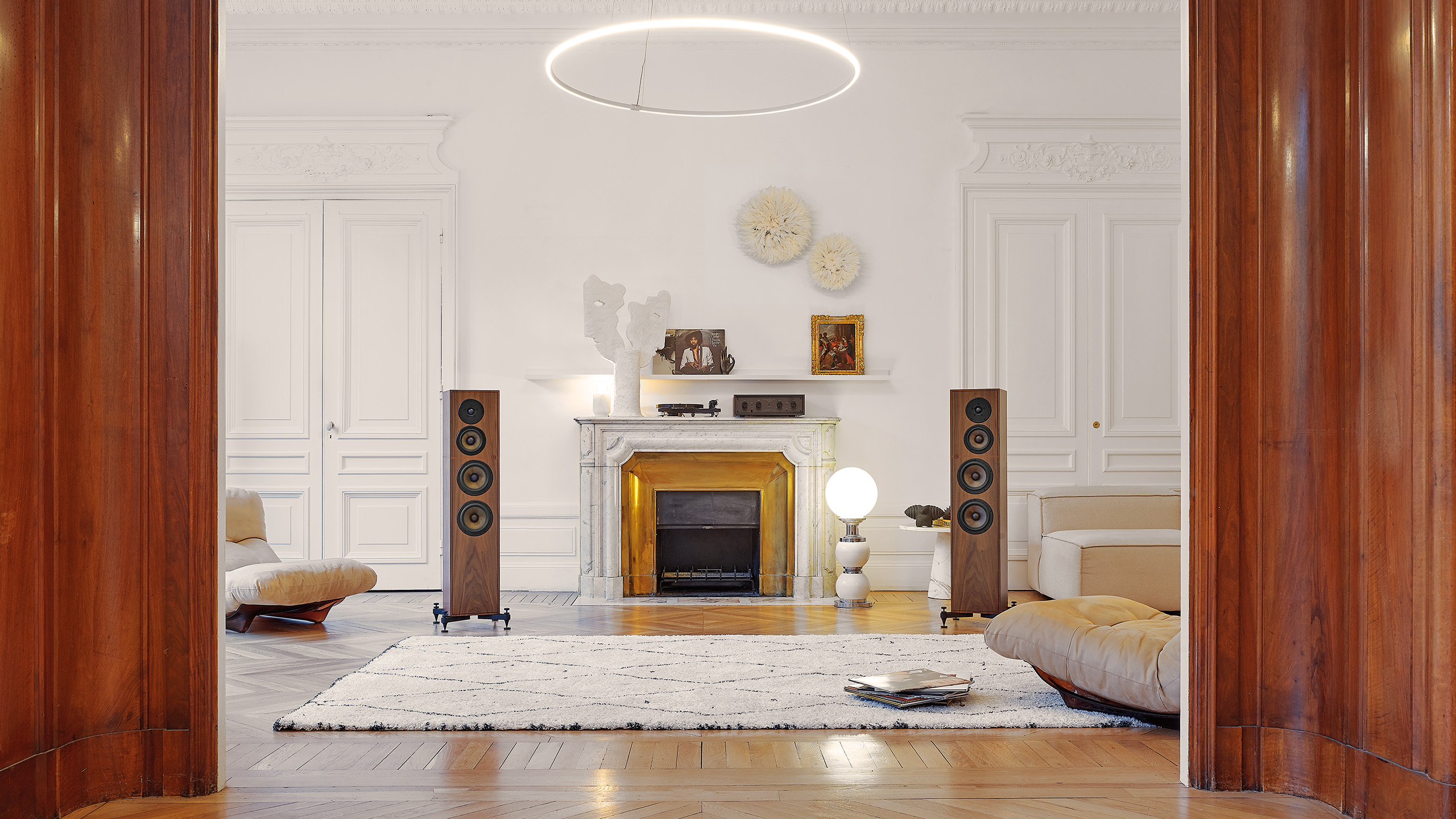

We think
Transparent and clean sound at a high standard. Easier to place than the Atalante 5. Superior craftsmanship. Only almost as revealing as the big brother.
3890 €
Specifications
- Construction principle: three-way bass reflex floorstanding speaker
- Woofers: 2 x 7″ with basalt/felt sandwich cone
- Midrange: 5.25″ with basalt/felt sandwich cone
- Tweeter: 28 mm soft dome
- Frequency range: 38 – 22,000 Hz (- 3 dB)
- Impedance: 4 ohms
- Sensitivity: 89 dB (2.83 V/1 m)
- Recommended amplifier power: 30 – 200 W
- Crossover: 550 Hz / 3 kHz, 2nd order
- Dimensions: 34.5 x 120.0 x 39.5 cm (WxHxD)
- Weight: 38 kg
- Colour: Walnut
- Web: revivalaudio.fr
